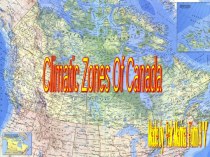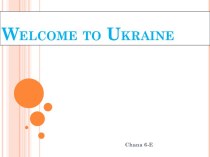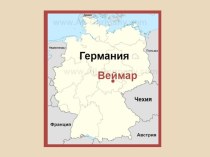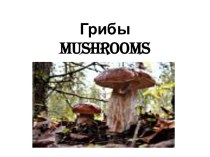- Главная
- Разное
- Бизнес и предпринимательство
- Образование
- Развлечения
- Государство
- Спорт
- Графика
- Культурология
- Еда и кулинария
- Лингвистика
- Религиоведение
- Черчение
- Физкультура
- ИЗО
- Психология
- Социология
- Английский язык
- Астрономия
- Алгебра
- Биология
- География
- Геометрия
- Детские презентации
- Информатика
- История
- Литература
- Маркетинг
- Математика
- Медицина
- Менеджмент
- Музыка
- МХК
- Немецкий язык
- ОБЖ
- Обществознание
- Окружающий мир
- Педагогика
- Русский язык
- Технология
- Физика
- Философия
- Химия
- Шаблоны, картинки для презентаций
- Экология
- Экономика
- Юриспруденция
Что такое findslide.org?
FindSlide.org - это сайт презентаций, докладов, шаблонов в формате PowerPoint.
Обратная связь
Email: Нажмите что бы посмотреть
Презентация на тему по английскому языку на тему My Motherland
Содержание
- 2. The world
- 3. The symbols of Daghestan.
- 4. .Makhachkala - a city in southern Russia,
- 5. The area where
- 6. Population. Daghestan is
- 7. Mountain of tongues The languages spoken in
- 8. The geographical situation, landscape diversity
- 9. 56% of
- 10. Folklore and handicraft traditions, especially
- 11. Wild life in the
- 12. The lowlands
- 13. The Caspian
- 15. . Daghestan, this
- 16. Скачать презентацию
- 17. Похожие презентации
The world Daghestan is origin and literally means «Land of Mountains». The full official name of republic as an administrative unit is the Republic of Daghestan. It is situated at the
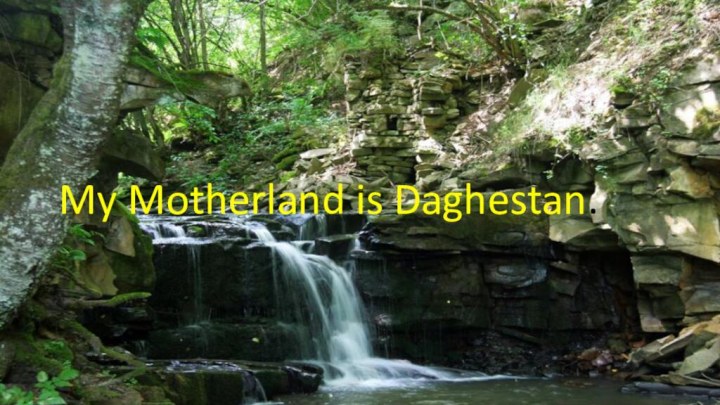

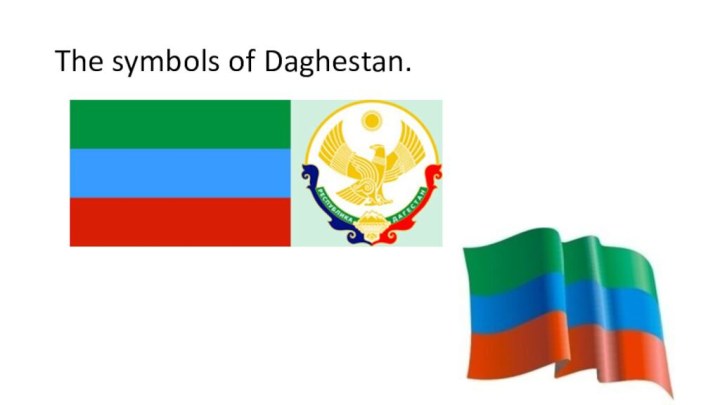

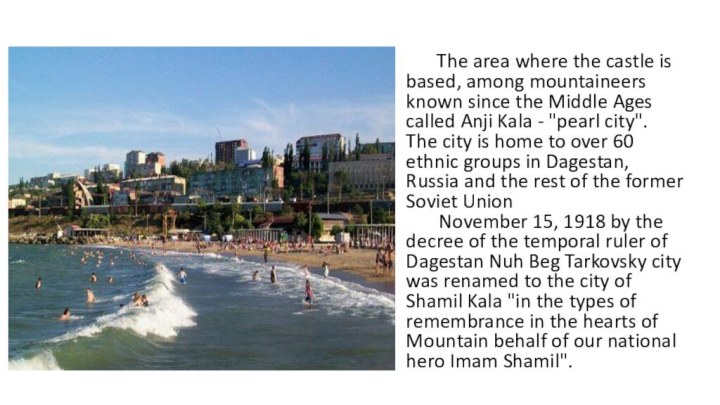
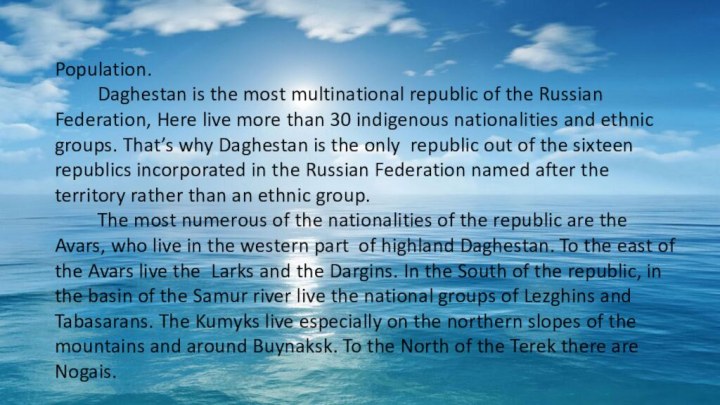
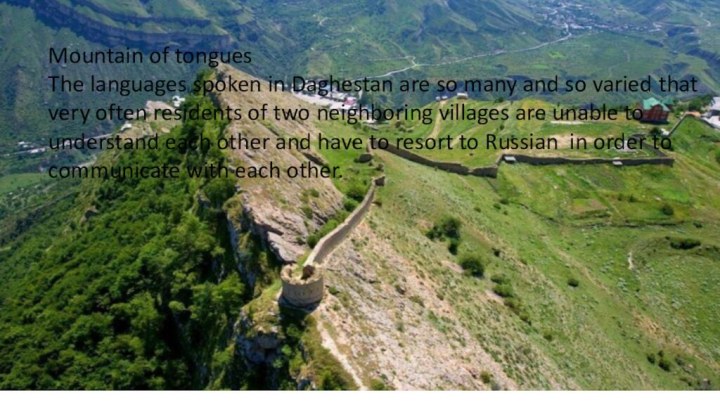
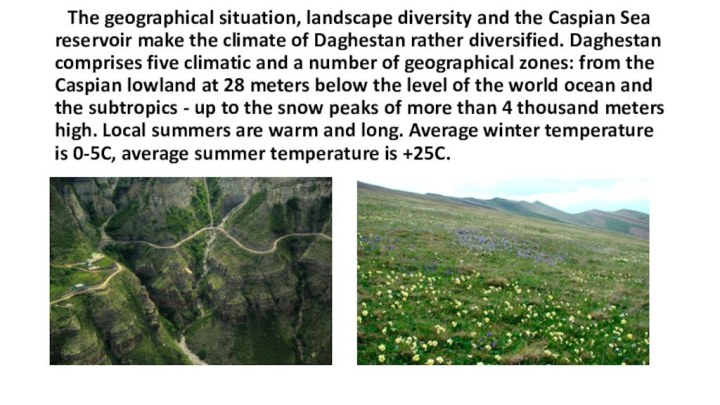
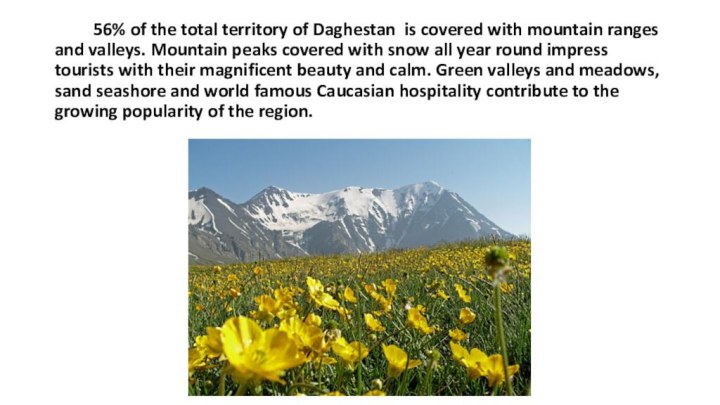
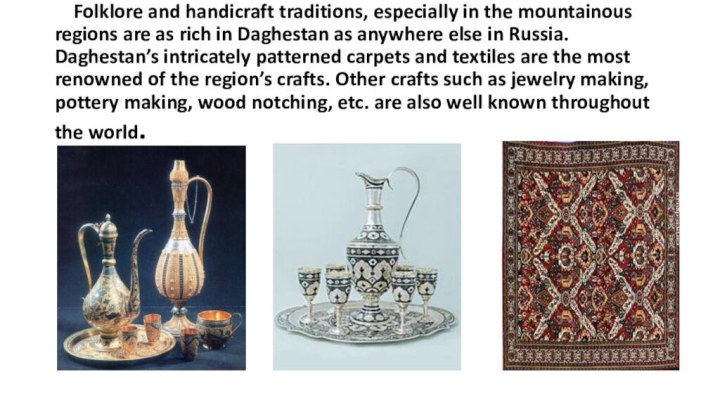

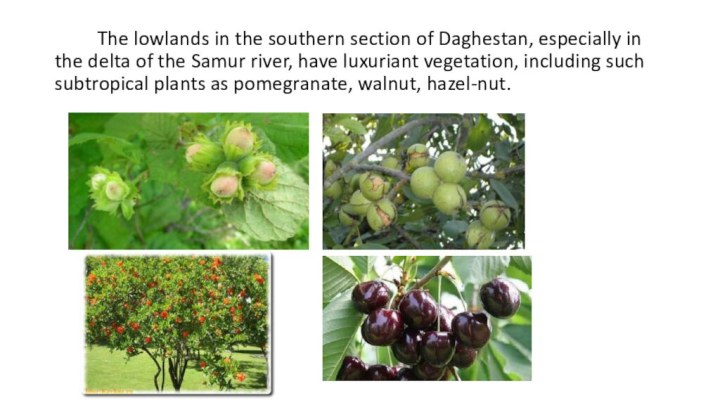
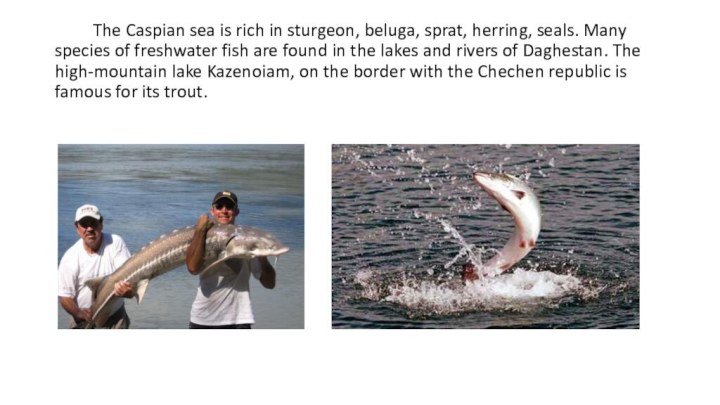

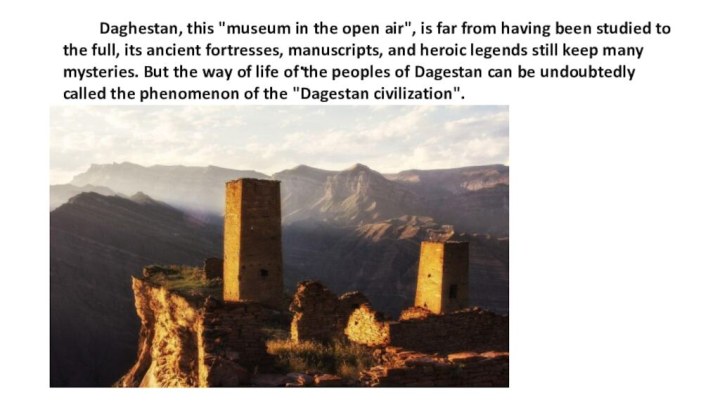
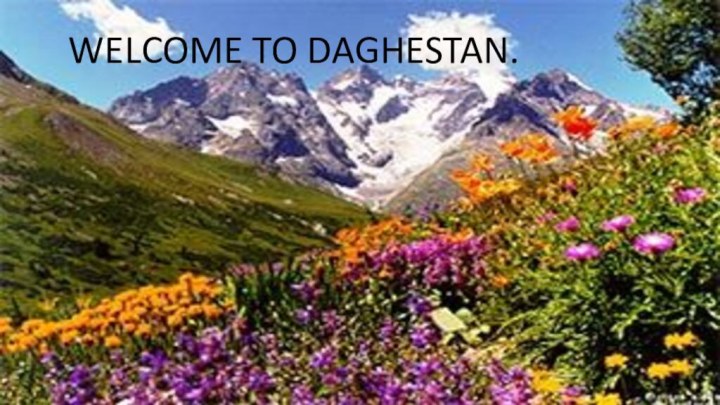
Слайд 4
.
Makhachkala - a city in southern Russia, the
capital of the Republic of Daghestan, the third most
populous city in the North Caucasus region and the largest city in the North Caucasian federal District. The population of the urban district Makhachkala - 705,642 humans. Makhachkala population agglomeration according to some estimates can be totally 1 million inhabitants. The administrative center of the city district is the city of Makhachkala.
Слайд 5
The area where the
castle is based, among mountaineers known since the Middle
Ages called Anji Kala - "pearl city".The city is home to over 60 ethnic groups in Dagestan, Russia and the rest of the former Soviet Union
November 15, 1918 by the decree of the temporal ruler of Dagestan Nuh Beg Tarkovsky city was renamed to the city of Shamil Kala "in the types of remembrance in the hearts of Mountain behalf of our national hero Imam Shamil".
Слайд 6
Population.
Daghestan is the
most multinational republic of the Russian Federation, Here live
more than 30 indigenous nationalities and ethnic groups. That’s why Daghestan is the only republic out of the sixteen republics incorporated in the Russian Federation named after the territory rather than an ethnic group.The most numerous of the nationalities of the republic are the Avars, who live in the western part of highland Daghestan. To the east of the Avars live the Larks and the Dargins. In the South of the republic, in the basin of the Samur river live the national groups of Lezghins and Tabasarans. The Kumyks live especially on the northern slopes of the mountains and around Buynaksk. To the North of the Terek there are Nogais.
